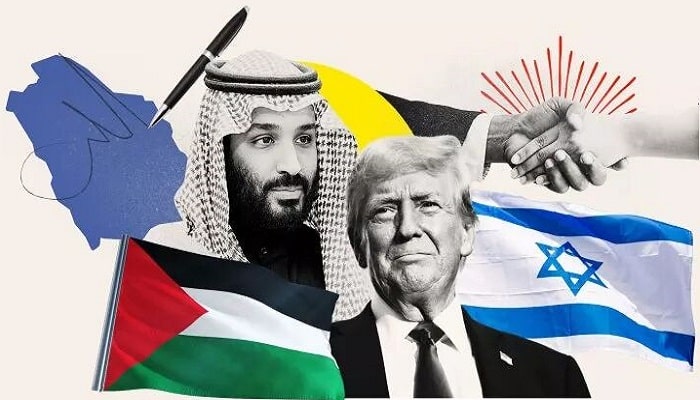PNN – Newsweek wrote: While the Middle East prepares for the return of Donald Trump to the White House, Saudi Arabia is looking for an agreement with Washington that shows Riyadh’s geopolitical position in the region and the extensive changes in the Middle East in the past four years.
According to the report of Pakistan News Network, Newsweek wrote: The election of Trump as the president of the United States took place at the same time as the deadlock in the negotiations between Washington and Riyadh on the big agreement, which includes the security guarantees of the United States for Saudi Arabia and the close cooperation of the two countries in various fields, including the nuclear development program.
Joe Biden’s government has also sought to establish diplomatic relations between Israel and Saudi Arabia within the framework of the so-called Abraham agreements, which Trump signed in 2020 with four Arab countries.
But according to Saudi observers, if Trump seeks to expand his legacy of normalizing relations between Arab countries and the Israeli regime in order to guarantee his relations with Riyadh, he should use his close relations with Israel to advance the issue of the formation of an independent Palestinian state.
The solution of forming two governments has long been the foundation of American diplomacy in the Israeli-Palestinian (regime) conflicts. The current war in Gaza has brought this issue to the forefront of international attention and at the same time threatens to suspend traditional approaches.
Referring to the welcome of the Zionist settlers to Trump’s return and his options for the cabinet, including the US ambassador to the occupied territories, this report wrote: According to Saudi Arabia, the solution to end this conflict is rooted in the Arab peace plan; The 10-point plan presented by Saudi Arabia and approved by the Arab League in 2002.
This plan calls for Israel to withdraw from all occupied lands after the 1967 Six-Day War, which includes East Jerusalem and parts of the West Bank, the Golan Heights, and the rest of the occupied lands. In exchange for this withdrawal, a comprehensive peace between the Arabs and the Israeli (regime), security guarantees and mutual recognitions are proposed.
Salman Al-Ansari, a leading Saudi political analyst, told Newsweek: It is still too early to talk about Trump’s decision to resolve this issue, but there is a mix of optimism and pessimism on the part of Saudi Arabia.
He explained the optimism because Trump has a history of deepening the economic relations between Saudi Arabia and the United States, and the pessimism because his new appointments, especially the American ambassador to Israel, are extreme right-wing and do not pay attention to international and humanitarian laws.
During the first term of his presidency, Trump established close relations with Saudi Arabia and the royal family of this country, especially Mohammed bin Salman, the crown prince of Saudi Arabia. He praised the sale of more weapons to Riyadh and vetoed an attempt by Congress to block arms sales to the country due to concerns about human rights issues related to the war in Yemen.
Newsweek noted: Current geopolitical realities in the Middle East region have made it difficult to follow through on previous agreements, including the Abraham Accords.
China is now Washington’s main rival in diplomatic efforts, and Saudi Arabia, which was aligned with America for a long time, can now have its leverage.
Mohammad Ahmad, a Saudi analyst in the field of geopolitical issues and the head of the advisory group of Saudi elites, said: Saudi Arabia’s reconciliation with Iran should not be underestimated, and any radical positions may harm it.
He described the warming of relations between Iran and Saudi Arabia as a significant change in Riyadh’s foreign policy and said: Maintaining communication routes with Tehran can reduce tensions in the region and prevent the spread of conflicts, which is not in our interest.
The Saudi political analyst said in this regard: It is important to know that Saudi Arabia has different options and will pursue its interests regardless of the American plans. The government of the Kingdom of Saudi Arabia knows that the United States cannot impose its radical policies on other countries or societies if it is not aligned with the main interests of this country.

